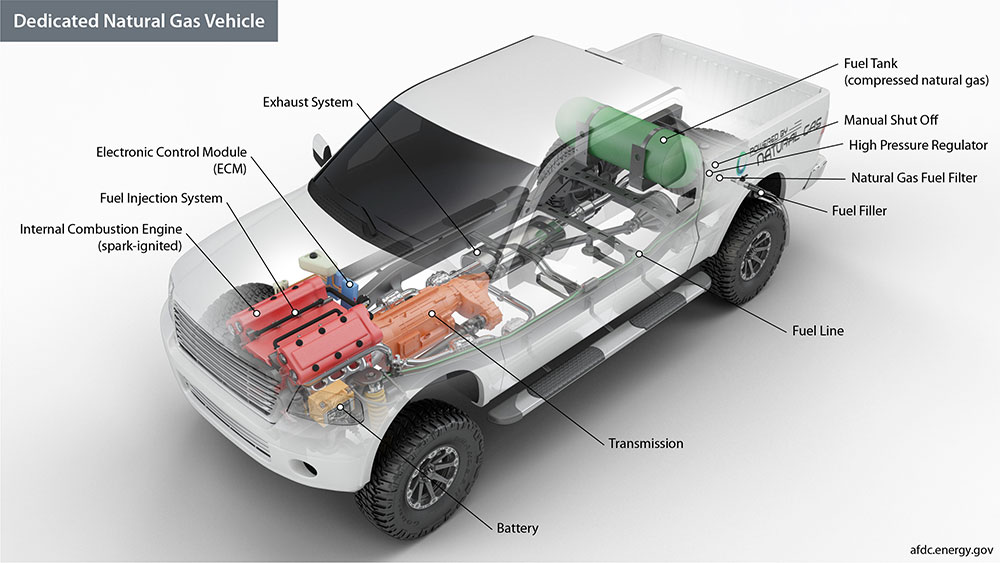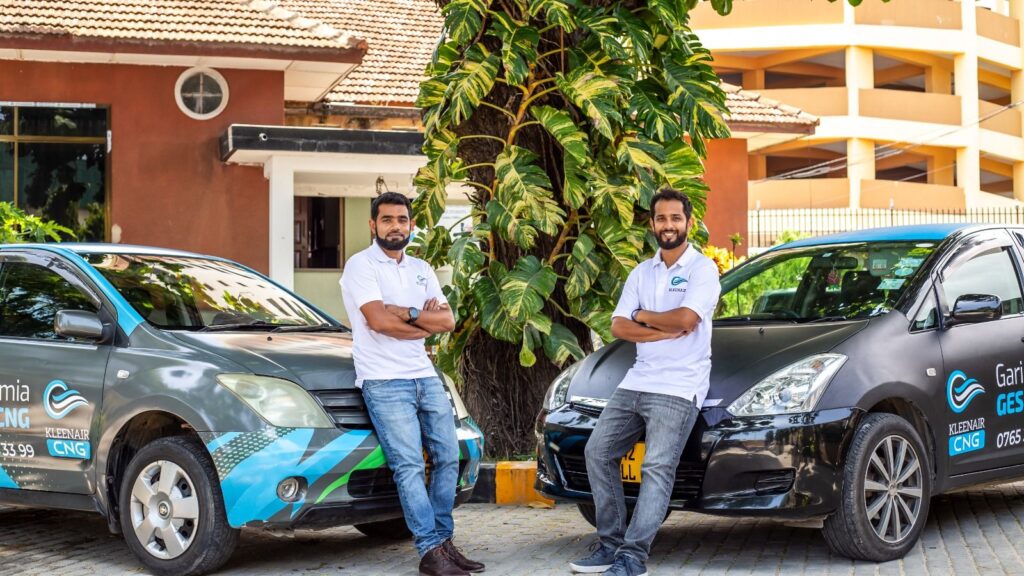Vijana FM recently had the opportunity to interview Adnan Mohamed, CEO for Kleenair CNG based in Dar es Salaam, Tanzania.
Compressed Natural Gas (CNG) is a fuel gas available in Tanzania. It is currently being used to replace traditional petrol or diesel fuel systems for motor vehicles. In cars, CNG is used in very similar ways to petrol or diesel.

Kleenair CNG is a service provider that converts petrol-based or diesel-based vehicles into CNG-based vehicles.
Here is what we asked Adnan from KleenairCNG.
1. Technology: The Kleenair CNG website mentions fuel savings of at least 50%. Can you explain how this works for different vehicles?
The CNG system can be installed in both Diesel and Petrol cars but the savings are generally higher in petrol cars due to the independent use of CNG as the primary fuel source.
In a petrol engine, CNG is used as an independent fuel source in running the engine meaning it’s using only CNG to run the car in that mode. Your original petrol system is still there and you can swap between the 2 fuels by a press of a button. You can save between 50-75% on your fuel costs in comparison to petrol. In a diesel car, CNG is used together with diesel in the engine hence the savings are less 15-20%.
Your original petrol system is still there and you can swap between the 2 fuels by a press of a button
The energy produced by 1kg of CNG is more than that produced in 1 liter of petrol. In terms of mileage, If your car gives you 10km per 1 liter of petrol, you shall get approximately 13.9km per kg of CNG. The price of CNG is TZS 1550/kg while 1 liter of petrol is TZS 3200/Liter.
Factoring into account the additional mileage per kg of CNG and price, savings are much more than 50% in comparison to petrol. It’s important to note that the savings percentage may vary depending on additional factors such as vehicle efficiency, and driving conditions.
2. Future: Can we imagine all public transport in cities like Dar-es-Salaam being driven by CNG? What are the implications for this?
Yes, it is possible to imagine all public transport in cities like Dar-es-Salaam being driven by CNG. The implications of such a transition would be as follows:
- Environmental benefits: CNG is a cleaner fuel compared to petrol or diesel, emitting lower levels of pollutants such as carbon dioxide, nitrogen oxides, and particulate matter. Switching to CNG-powered public transport would contribute to reducing air pollution and improving air quality in the city, leading to better public health outcomes.
- Cost savings: As mentioned earlier, CNG is generally cheaper than petrol or diesel. By using CNG as a fuel for public transport, the operational costs for transport operators would decrease, resulting in potential cost savings. These savings could be passed on to passengers through lower fares or reinvested in improving the quality of public transport services.
These savings could be passed on to passengers through lower fares or reinvested in improving the quality of public transport services.
- Energy security: CNG is domestically available in Tanzania. Shifting to CNG-powered public transport would reduce dependence on imported petroleum products, enhancing energy security for the country.
- Infrastructure development: To support a widespread adoption of CNG-powered public transport, the necessary infrastructure needs to be developed. This includes establishing CNG refueling stations throughout the city. This infrastructure development would create job opportunities and stimulate economic growth.
- Technological advancements: The transition to CNG-powered public transport would require the conversion or purchase of new CNG-fueled vehicles. This would drive technological advancements in the automotive industry, leading to the development of more efficient and environmentally friendly CNG vehicles.
- Policy and regulatory framework: To facilitate the transition to CNG-powered public transport, supportive policies and regulations need to be in place. This includes incentives for transport operators to switch to CNG, regulations for the installation and operation of CNG refueling stations, and safety standards for CNG vehicles. The Minister of Energy yesterday announced that in order to reduce dependence on imported fuel, the government should look into setting up more fuel stations and even consider converting government vehicles to use CNG.
Overall, transitioning all public transport in cities like Dar-es-Salaam to CNG would have positive implications for the environment, economy, and energy security, while also improving the quality of public transport services.

3. Policy: Is there a national policy on CNG in Tanzania? If yes, what are key takeaways for people who want to switch?
The Amendment of the Value Added Tax (VAT) Act in 2023 has removed VAT on accessories used in the conversion of motor vehicle fuel systems to natural gas and import duty exempted on CNG cylinders for motor vehicles. This has reduced the cost of installation and has encouraged the public to convert their cars to CNG.
We as Kleenair CNG have a special offer for clients who would like to pay in instalments. We have partnered with Maendeleo Bank and our financing product allows for clients to get a loan without paying any down payment and getting a grace period of 3 weeks from loan approval before making the first installment. Below are the payment plan options:
Maendeleo Bank Payments for Kleenair CNG services
| Miezi 6 | Miezi 9 | Miezi 12 | Miezi 18 | |
| 11kg Cylinder | TZS 396,097 | TZS 275,875 | TZS 216,017 | TZS 156,651 |
| 15kg Cylinder | TZS 518,244 | TZS 360,958 | TZS 282,639 | TZS 204,964 |
Documents required for bank loan for CNG installation
- Original motor vehicle card with applicant name on it or title deed of property as collatoral
- 3 passport size photos
- Ward introduction letter (Barua kutoka serekali ya mtaa wa makazi)
- Proof of income (Bolt/Uber statements, 3 months Pay slip, business license or Tin certificate)
- Copy of National ID Card, Passport or Voters ID Card
Cash payment option for CNG installation
- 11kg Cylinder: TZS 1,890,000
- 15kg Cylinder: TZS 2,520,000
The above are for 4 cylinder petrol cars. 6 cylinder petrol car prices are 300k higher and 8 cylinder car installation prices are 400k higher.
4. Context: There’s a lot of talk about electric vehicles around the world. Is it relevant for Tanzania?
Both Electric and CNG cars have their benefits and disadvantages but I believe incorporating CNG for motor vehicles is a better option for Tanzania taking into consideration that most of the cars in Tanzania are old models, CNG is a locally produced fuel, cost of conversion of cars to CNG vs to electric, infrastructure requirements for electric charging and grid power stability.

5. Careers: What career pathways would you recommend for young people who are interested in sustainable energy for transportation?
Look into learning specific skills that are required and useful in the industry that you are interested in. An example is if you want to go into retrofitting CNG in vehicles, go to an accredited institution and get certified in CNG retrofitting, welding, and safety (both hands on and theory). Implement those skills by working for a CNG converter and gain experience. Every 6 months, assess yourself and see how you can improve yourself toward attaining your major goals.

